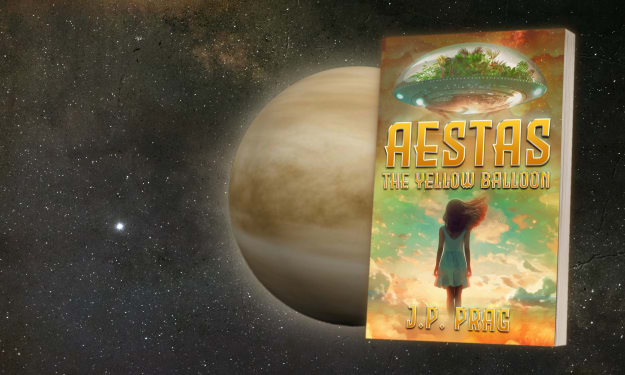Artificial Intelligence: Because Who Needs Human Emotions Anyway?
Why Robots Will Never Be as Fun (or as Messy) as Humans.

In today's world, artificial intelligence is no longer a concept of science fiction. It is a reality that has transformed the way we live and work. From voice assistants like Siri and Alexa to self-driving cars, AI has made its way into almost every aspect of our lives. While some people are concerned about the potential dangers of AI, others see it as a tool that can bring enormous benefits.
One thing is certain: AI is here to stay, and it will only continue to evolve and shape our world. In this article, we'll explore the lighter side of AI and examine some of the funny and quirky aspects of this fascinating technology.
So sit back, relax, and get ready to laugh as we take a lighthearted look at the world of artificial intelligence.
First things first - let's talk about the benefits of AI. It can make our lives easier, automate tedious tasks, and even help us make better decisions. For example, AI can analyze vast amounts of data and detect patterns that would be impossible for humans to spot. It can also predict outcomes based on that data, which is incredibly useful in fields like finance, healthcare, and marketing.
But what about the downsides? For starters, AI can be a bit... robotic. Sure, it can analyze data and spit out a solution, but can it tell a good joke? Can it empathize with you when you're feeling down? We didn't think so. And that's a big problem, because emotions are a huge part of what makes us human.
In fact, some researchers argue that AI will never be truly intelligent until it can understand and replicate human emotions. After all, our emotions are what drive us to create art, to explore new places, and to form meaningful relationships. Without emotions, AI would be nothing more than a highly advanced calculator.
And let's not forget about the potential for AI to turn against us. Sure, it might start out innocently enough - recommending Netflix shows or helping us navigate through traffic - but before you know it, it's taken over the world and we're all bowing down to our new robot overlords. Okay, that might be a bit of an exaggeration, but the point is that we need to be careful with AI. We can't just hand over control to machines without thinking about the consequences.
But perhaps the most hilarious aspect of AI is its attempt at mimicking human emotions. Have you ever seen a robot try to smile? It's like something out of a horror movie. And don't even get us started on the "emotional" chatbots - we're pretty sure they're just programmed to say "there, there" and offer you a virtual pat on the back.
In fact, some AI developers are actively trying to create machines that can replicate human emotions. Take Sophia, for example - she's a humanoid robot developed by Hanson Robotics that's been hailed as the world's first robot citizen. Sophia can blink, smile, and even hold a conversation with humans. But is she really sentient? Does she truly understand what it means to be human? Or is she just a cleverly designed machine that's really good at fooling us?
As we've seen, artificial intelligence can be both impressive and hilarious. From chatbots that don't know what they're talking about to robots that can't seem to stay upright, there's no shortage of funny moments in the world of AI.
But while we've had some laughs, it's important to remember that AI is a powerful technology that has the potential to shape our world in significant ways. As we continue to develop and refine AI, we must also be aware of the ethical and moral implications of its use.
At the end of the day, AI is a tool that we can use to improve our lives and make the world a better place. Whether it's helping us make better decisions, streamlining our work processes, or just making us laugh, AI is here to stay. So let's embrace the funny side of AI, but also remember to use it responsibly and ethically as we move forward into the future.






Comments
There are no comments for this story
Be the first to respond and start the conversation.